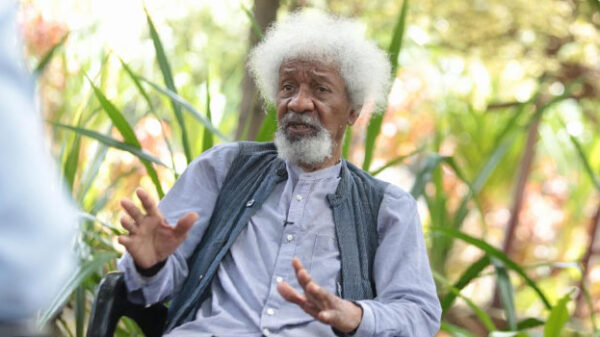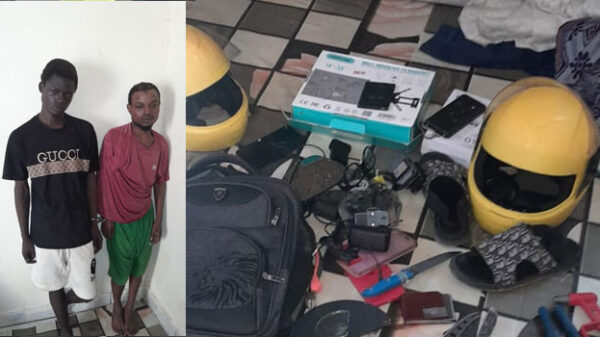NAIROBI, Kenya, Sept 21 – The HIV/AIDS pandemic can be described as a kind of contemporary apocalypse due to its catastrophic spread especially in sub-Saharan Africa.
A number of factors are involved in the spread of HIV with the AIDS virus which in turn gives rise to other problems. The conditions that prevail in some of the lands in Africa and in other parts of the world where AIDS is gaining ground are often related to morality, increase in sexually transmitted diseases, poverty, ignorance and culture.
In Kenya, a lot of sensitization exercises on how to protect oneself and the stigma associated with the virus have been ongoing with varying degrees of success.
However in some communities, those infected by the virus are still being subjected to inhumane treatment with most of them often being viewed as outcasts.
Ms Amina Ali is one such person. She says that she was devastated when she discovered that she was infected.
That was when she turned to her family to help her cope with the trauma but they out rightly rejected her and threw her out of her home like a leper.
"When my brother came, he found that I was sick. So he took me to the hospital and I was tested and found to be HIV positive," Amina recounted.
"When he heard this, he called me a prostitute who had no morals at all, but I know that I have not done anything wrong. I have not led a loose life," she said.
As she tearfully recounted her ordeal, her family immediately drew the conclusion that she was promiscuous and banished her. She says that even the doctors who were supposed to offer hope made her feel quite worthless.
"The doctor looked at me and told me to get out of the hospital. He asked me why I was lying here and I told him that I had been chased away from my home but he never wanted to listen," she stated.
The story of Mrs. Habiba Abdallah however reads from a different script. She said that she has learned to live with her condition through positive thinking and support from her family.
She however pointed out that it required enormous mental strength and will power to overcome the trauma of her condition but affirmed that she has prevailed in this endeavour.
"I would like to tell those who are infected like me to have hope. I am living positively and all this is because of hope," she said.
"You can also live long. God is there and he will not abandon you in your trials and tribulations."
Mrs. Habiba lives a happy life now; she is now married and has one additional child with her husband whom she met during a counselling session.
"I went to a counselling session and that is where I met with my husband. When we set eyes on each other, it was love at first sight and we never looked back," she reminisced.
After many years of peering at virus particles through the electron microscope, scientists have not ceased to be amazed and excited by the precision and intricacy of design in something so small.
A virus is smaller than a bacterium, which in turn is much smaller than the average human cell.
The HIV virus is so small that 230 million particles would fit on the period at the end of this sentence.
A virus cannot multiply unless it infiltrates a host cell and commandeers the cell’s resources so when HIV invades the human body, it must contend with the considerable forces that are at the disposal of the immune system.
A defence network composed of white blood cells is produced in the bone marrow. The white blood cells include two main types of lymphocytes, known as T cells and B cells. Some other white blood cells are called phagocytes, or cell eaters.
The various categories of T cells have different assigned functions. Those called helper T cells play a key role in the war strategy.
Helper T cells assist in identifying foreign invaders and issue instructions for the production of cells that attack and destroy the enemy.
In its attack, HIV particularly targets these helper T cells. Killer T cells are activated to destroy body cells that have been invaded. B cells produce antibodies that are recruited in the fight against infections.
One other way through which the HIV/AIDS virus is transmitted is through blood transfusion where the blood of a donor is infused into a patient.
That is how Mr. Idris Hassan, a former businessman who is now 55 years old contracted the disease after going to the hospital and he said that it was like a milestone in his life after he discovered that he was infected 14 years ago.
"I was a businessman initially but later on when I discovered that I was infected, I turned to working on how I could improve the lives of those who are also infected," Mr Idris stated.
He explained that he has learned to live with a positive outlook and this has helped him even to assist others come to terms with their condition.
"When I was told that I was HIV positive, I did not go into shock for a long time. It lasted only two or three days but I took heart and decided to make the best of my situation," he said.
Garrisa branch Kenya Red Cross Home Based Care assistant Jawahir Mohamed is calling for a change in attitude especially where stigma of HIV/Aids patients is rife.
She expounded that anyone can be infected and thus people should have the knowledge of how to deal with the disease.
"I am calling for a change of attitude towards the sickness because any of us may be affected and thus we need to be ready at all times to ensure that we may know hoe to treated those who are positive," she pleaded.
Her sentiments were echoed by the Kenya National Commission on Human Rights (KNCHR) chairperson Florence Jaoko who said that sensitization exercises should be undertaken at the family and community level.
"Awareness must be created at the lowest level. What people do not understand is that there are those who are infected and then there are those who are affected," the KNCHR chairperson explained.
"Unfortunately sometimes those who are affected and not infected begin to believe that by associating with those who are infected, they may also be infected," she further observed.
Africa Public Health and Research Centre Executive Director Alex Ezeh underscored the need for everyone in the society to proffer help especially to those affected by the HIV/AIDS virus so as to help them live normal lives.
"HIV/AIDS epidemic in Africa has affected almost every family in the region. If we have all been affected, what is the point of thinking that we are being stigmatized?" he posed.
"We need to be able to support each other to fight against this stigma," Mr. Ezeh concluded.
Indeed the fight against this enemy is far from over. As scientist’s world over seek to find a cure to the ailment, we can only hope that the society will stop treating those infected with nine yard pole and accept them as human beings who have a longing to belong.








































